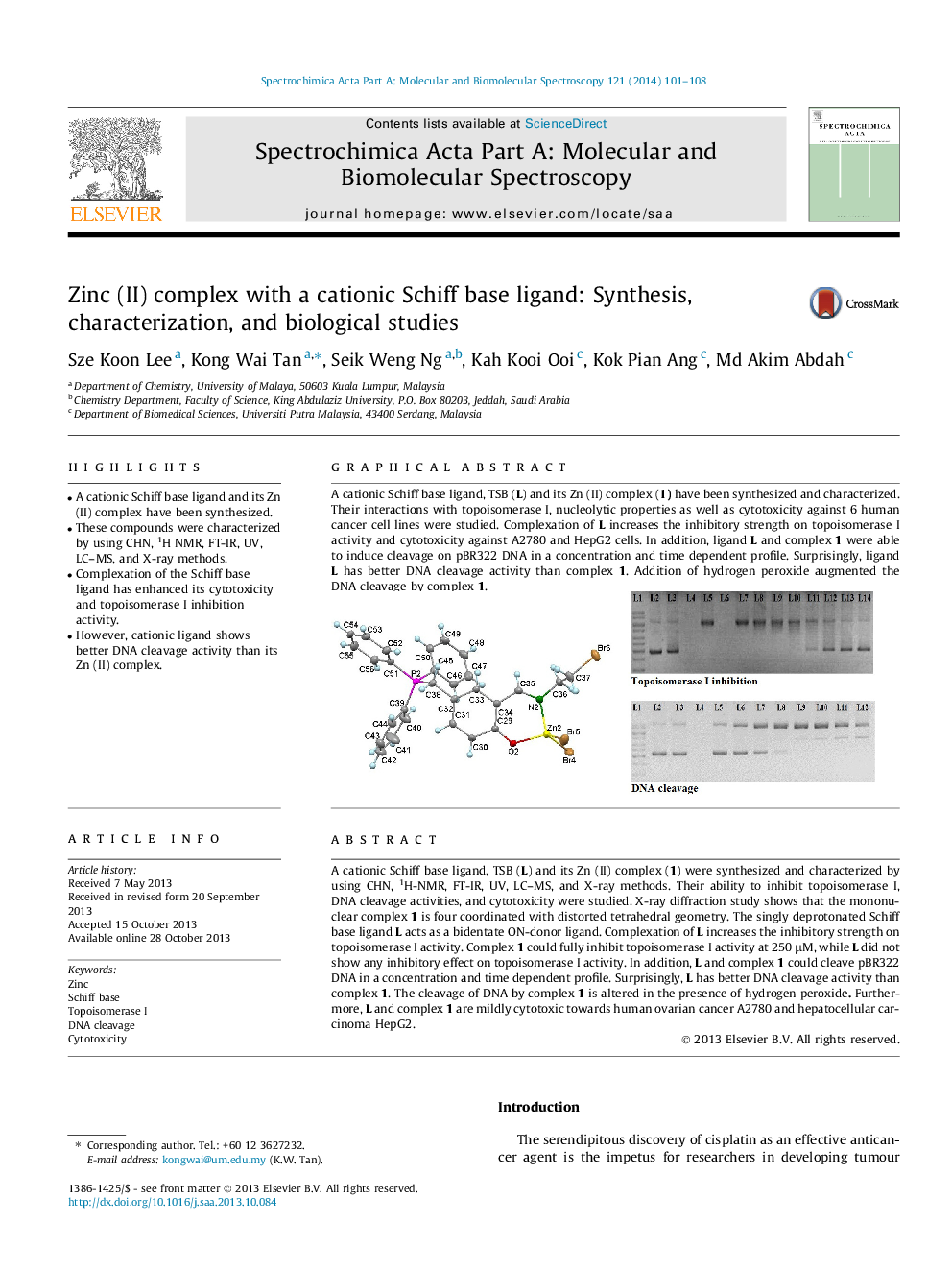| کد مقاله | کد نشریه | سال انتشار | مقاله انگلیسی | نسخه تمام متن |
|---|---|---|---|---|
| 1230451 | 1495247 | 2014 | 8 صفحه PDF | دانلود رایگان |

• A cationic Schiff base ligand and its Zn (II) complex have been synthesized.
• These compounds were characterized by using CHN, 1H NMR, FT-IR, UV, LC–MS, and X-ray methods.
• Complexation of the Schiff base ligand has enhanced its cytotoxicity and topoisomerase I inhibition activity.
• However, cationic ligand shows better DNA cleavage activity than its Zn (II) complex.
A cationic Schiff base ligand, TSB (L) and its Zn (II) complex (1) were synthesized and characterized by using CHN, 1H-NMR, FT-IR, UV, LC–MS, and X-ray methods. Their ability to inhibit topoisomerase I, DNA cleavage activities, and cytotoxicity were studied. X-ray diffraction study shows that the mononuclear complex 1 is four coordinated with distorted tetrahedral geometry. The singly deprotonated Schiff base ligand L acts as a bidentate ON-donor ligand. Complexation of L increases the inhibitory strength on topoisomerase I activity. Complex 1 could fully inhibit topoisomerase I activity at 250 μM, while L did not show any inhibitory effect on topoisomerase I activity. In addition, L and complex 1 could cleave pBR322 DNA in a concentration and time dependent profile. Surprisingly, L has better DNA cleavage activity than complex 1. The cleavage of DNA by complex 1 is altered in the presence of hydrogen peroxide. Furthermore, L and complex 1 are mildly cytotoxic towards human ovarian cancer A2780 and hepatocellular carcinoma HepG2.
A cationic Schiff base ligand, TSB (L) and its Zn (II) complex (1) have been synthesized and characterized. Their interactions with topoisomerase I, nucleolytic properties as well as cytotoxicity against 6 human cancer cell lines were studied. Complexation of L increases the inhibitory strength on topoisomerase I activity and cytotoxicity against A2780 and HepG2 cells. In addition, ligand L and complex 1 were able to induce cleavage on pBR322 DNA in a concentration and time dependent profile. Surprisingly, ligand L has better DNA cleavage activity than complex 1. Addition of hydrogen peroxide augmented the DNA cleavage by complex 1.Figure optionsDownload as PowerPoint slide
Journal: Spectrochimica Acta Part A: Molecular and Biomolecular Spectroscopy - Volume 121, 5 March 2014, Pages 101–108